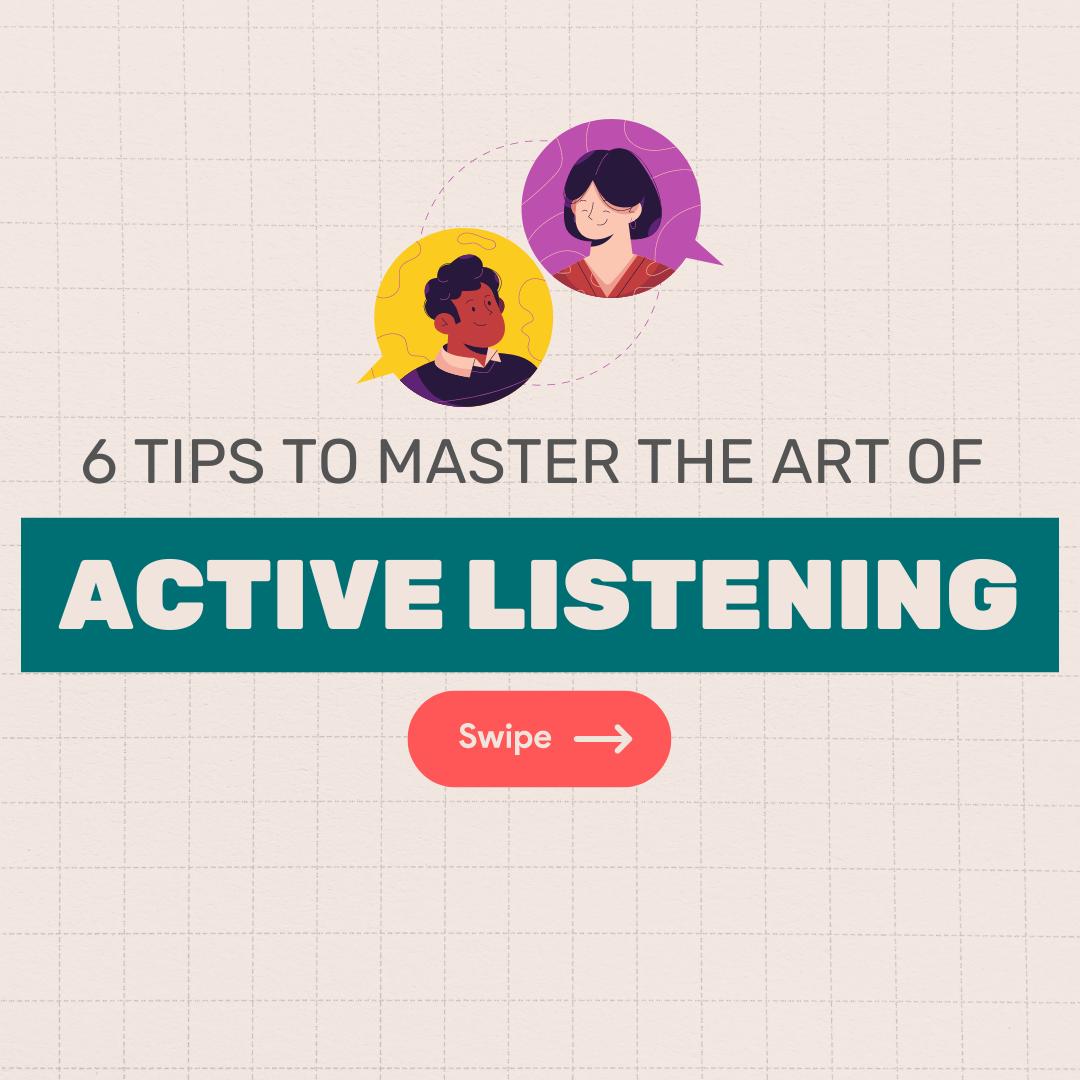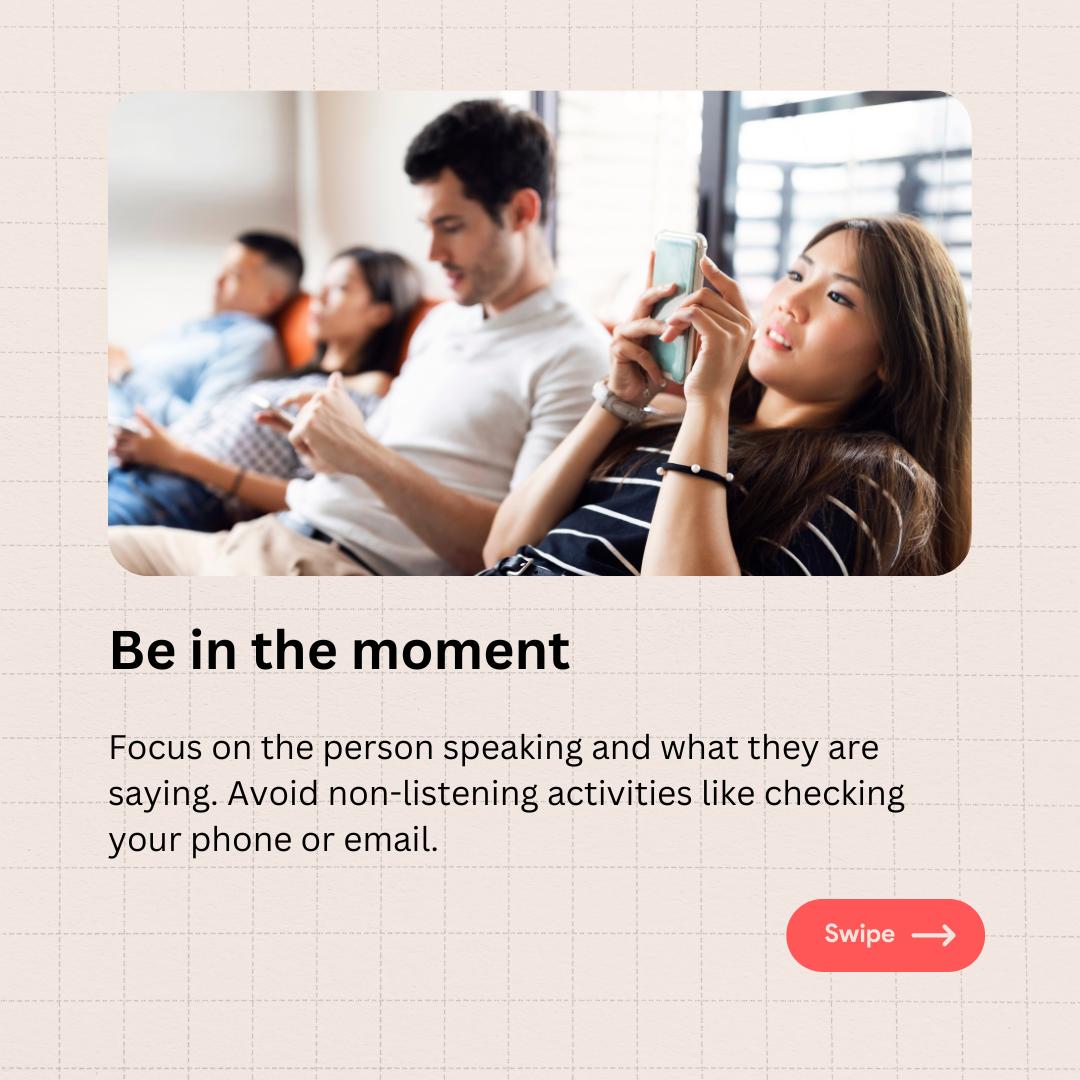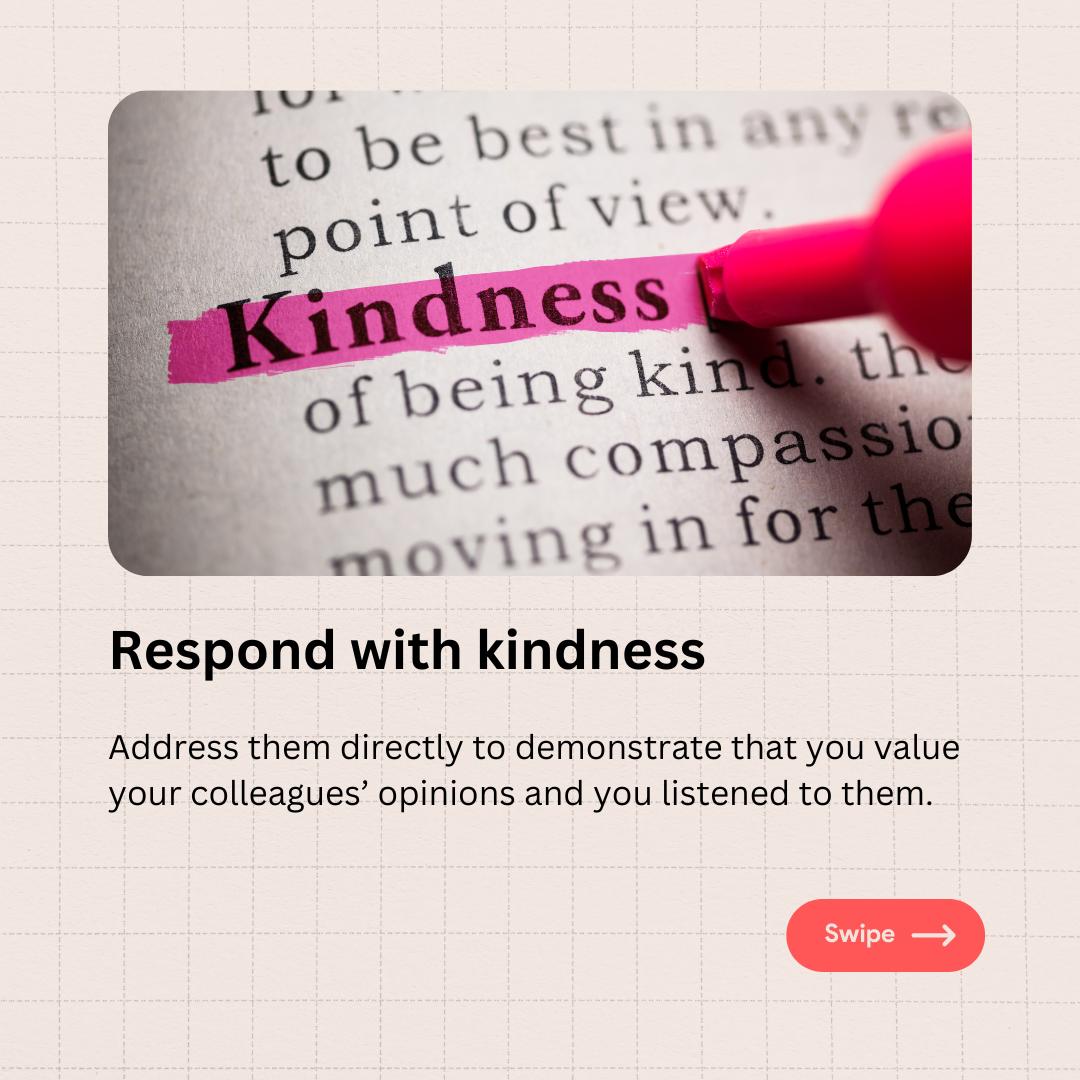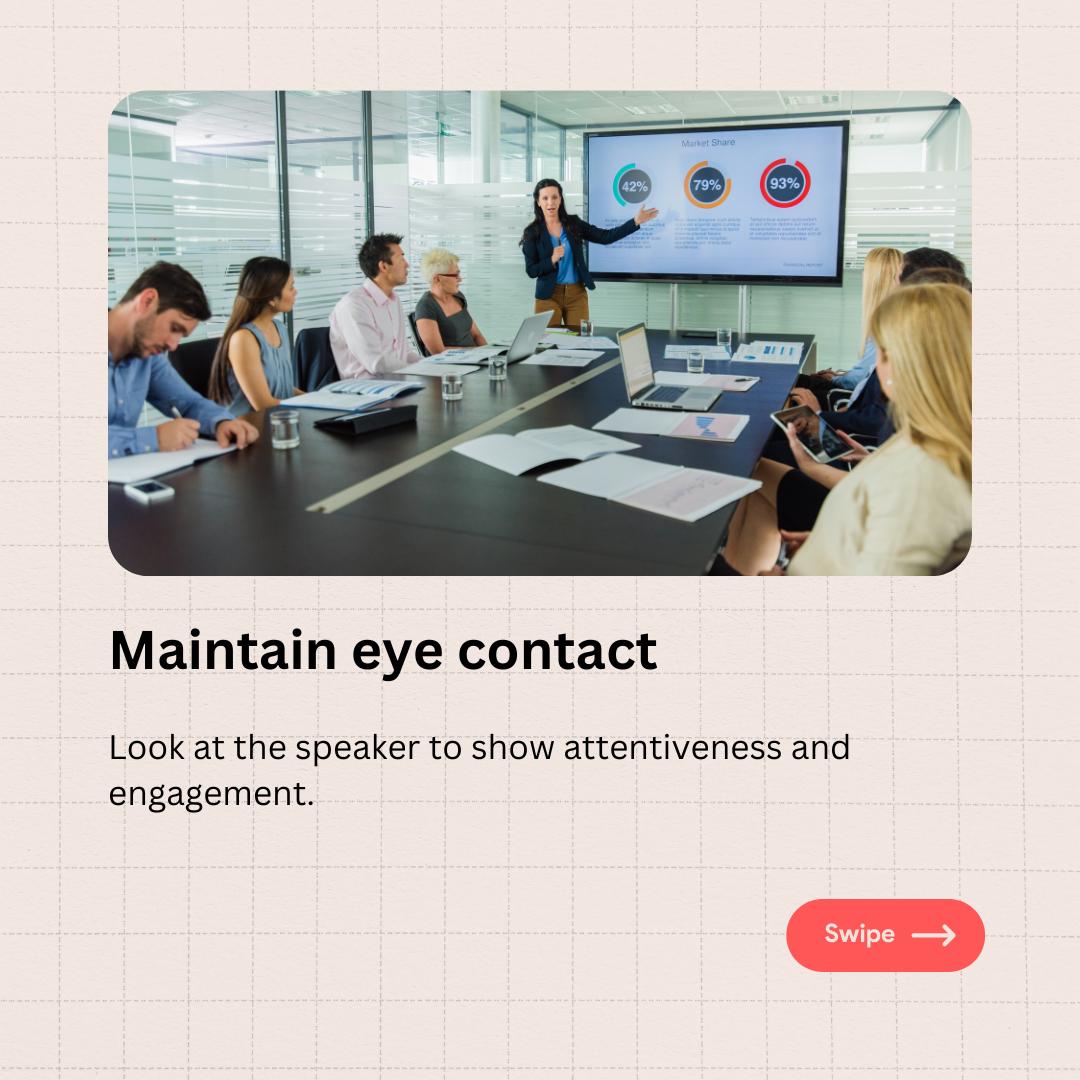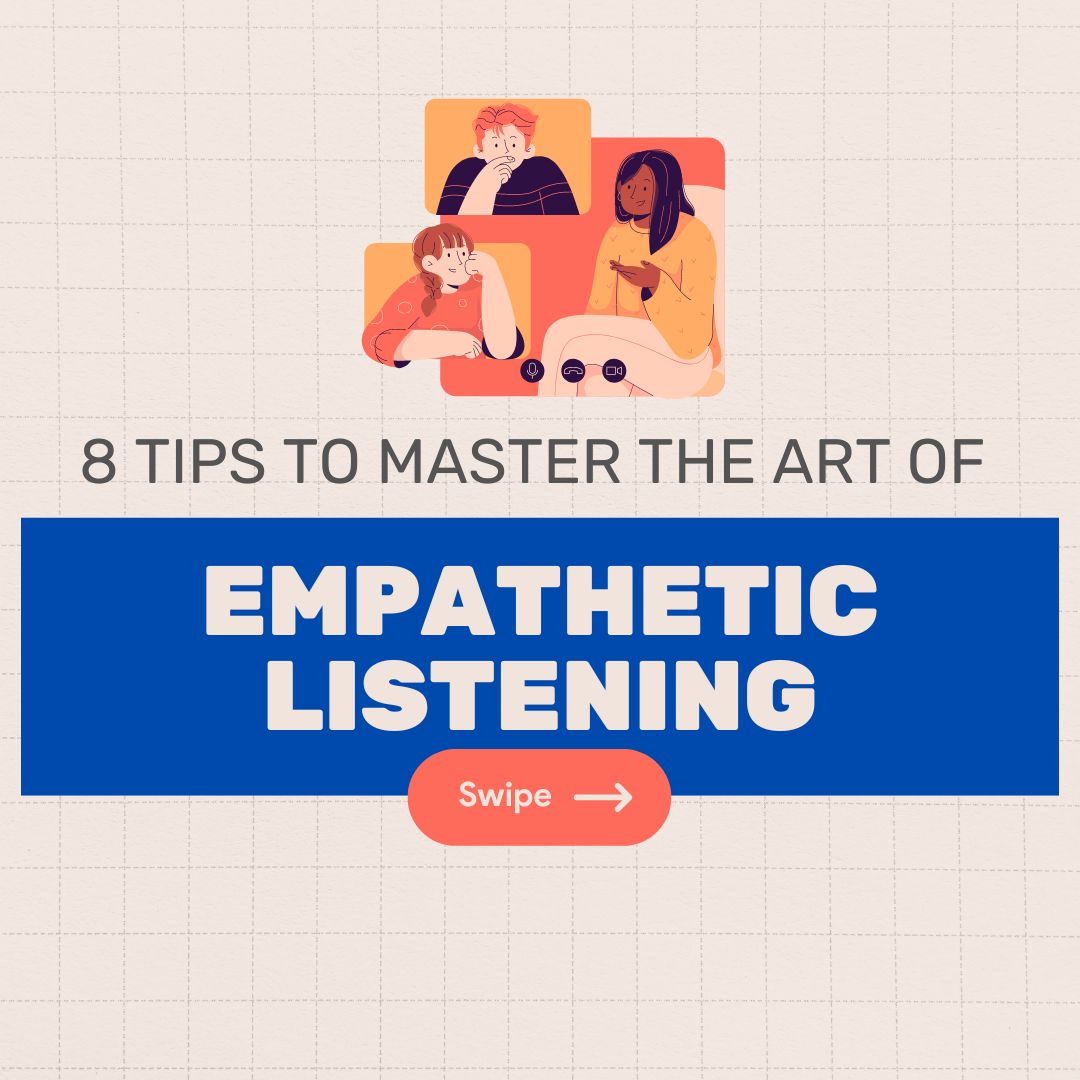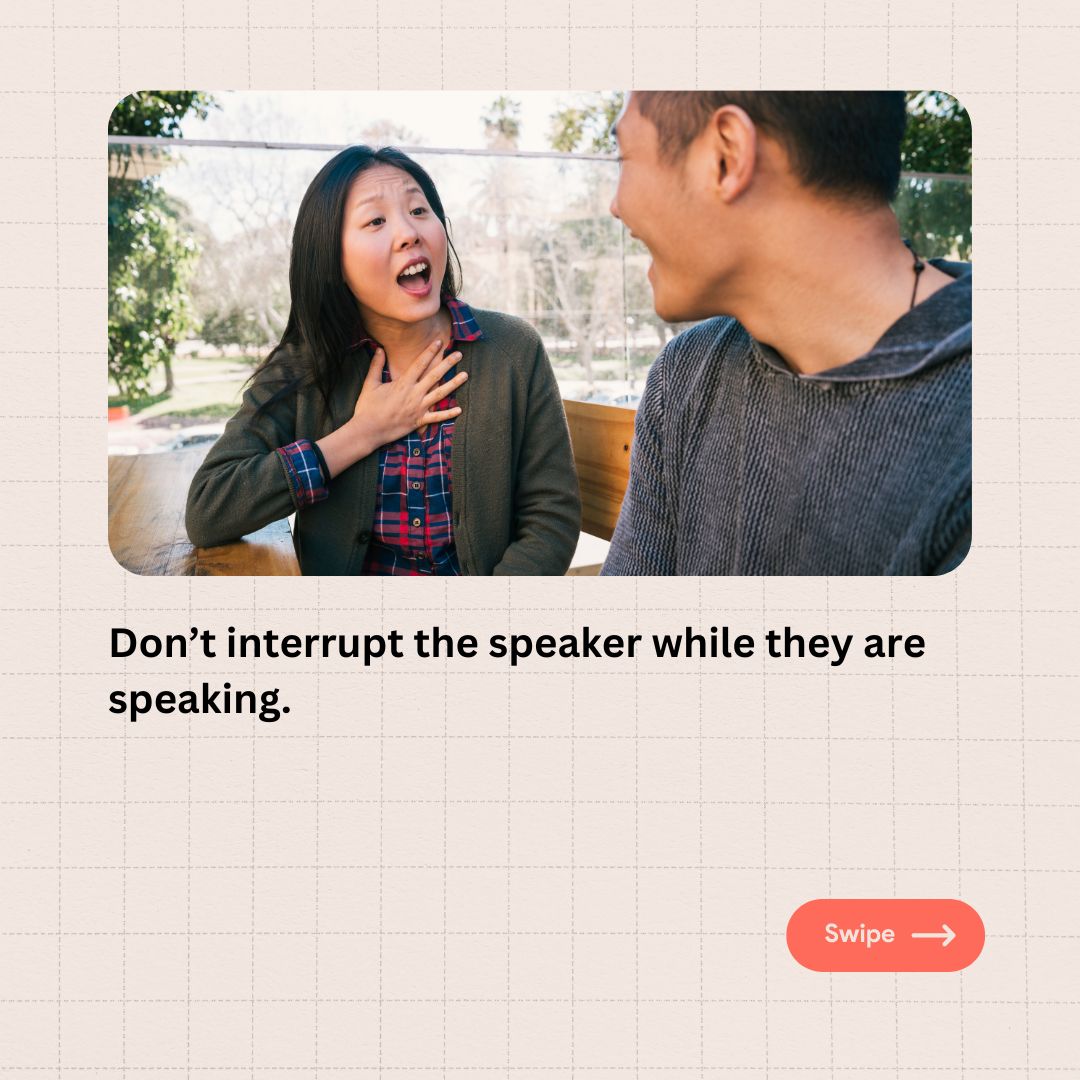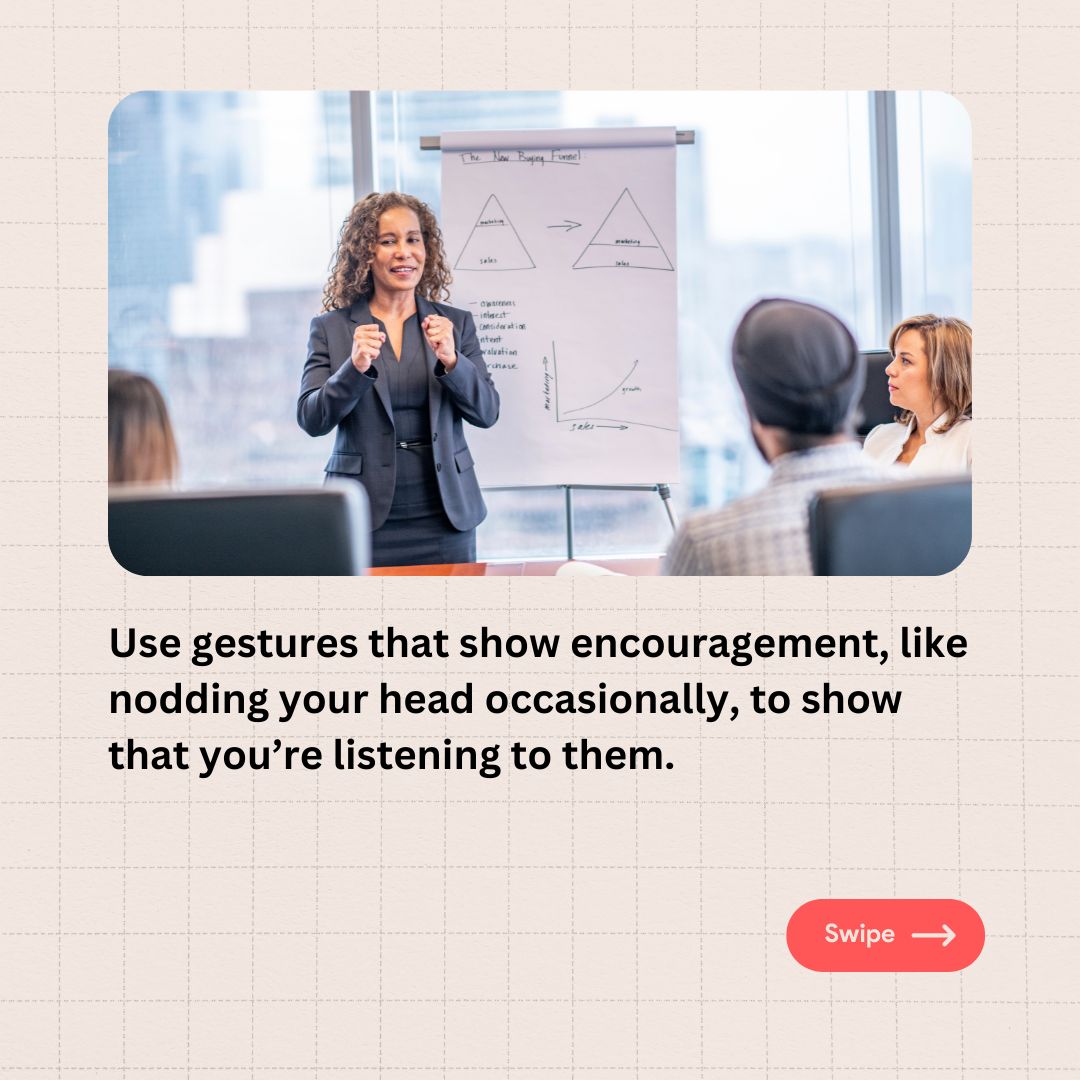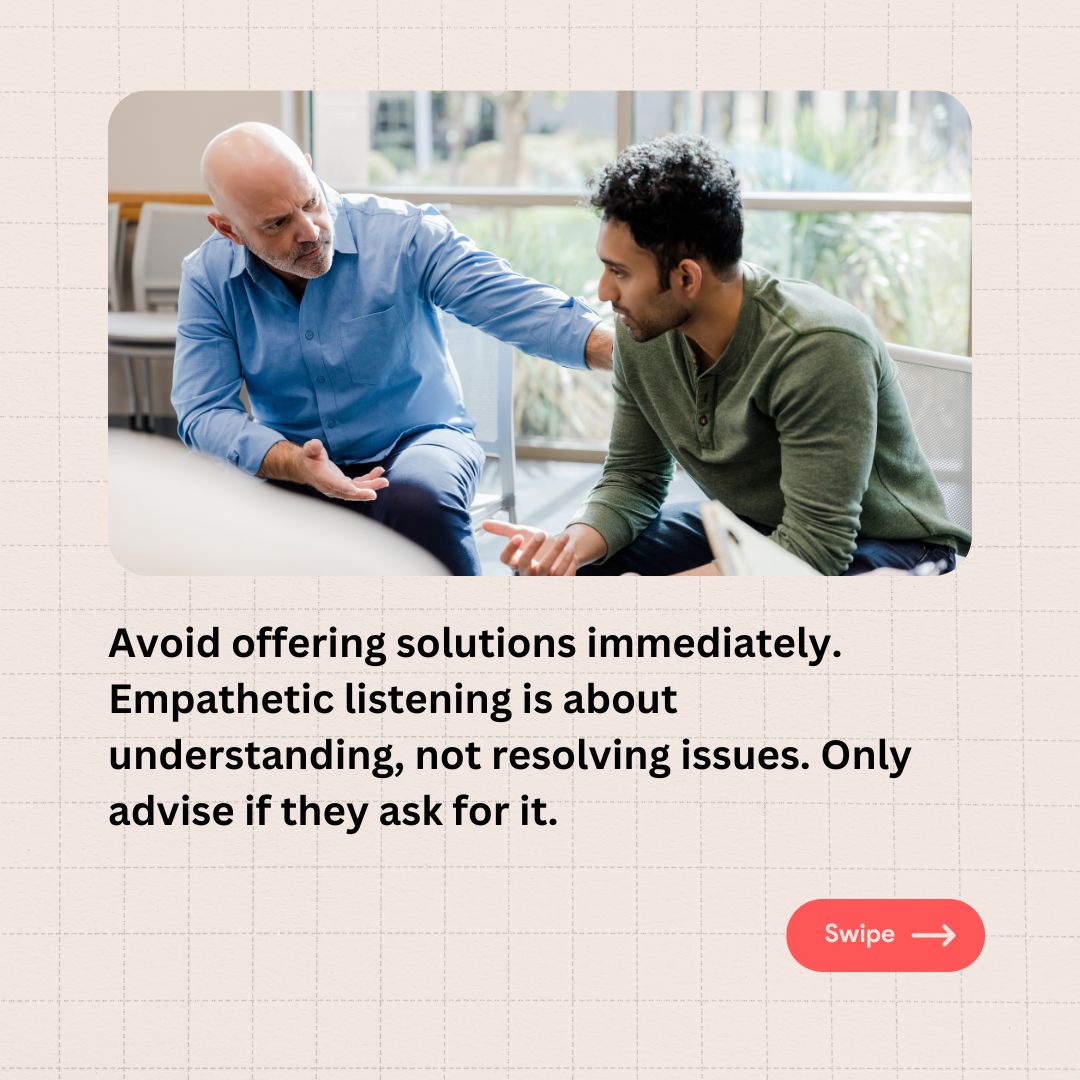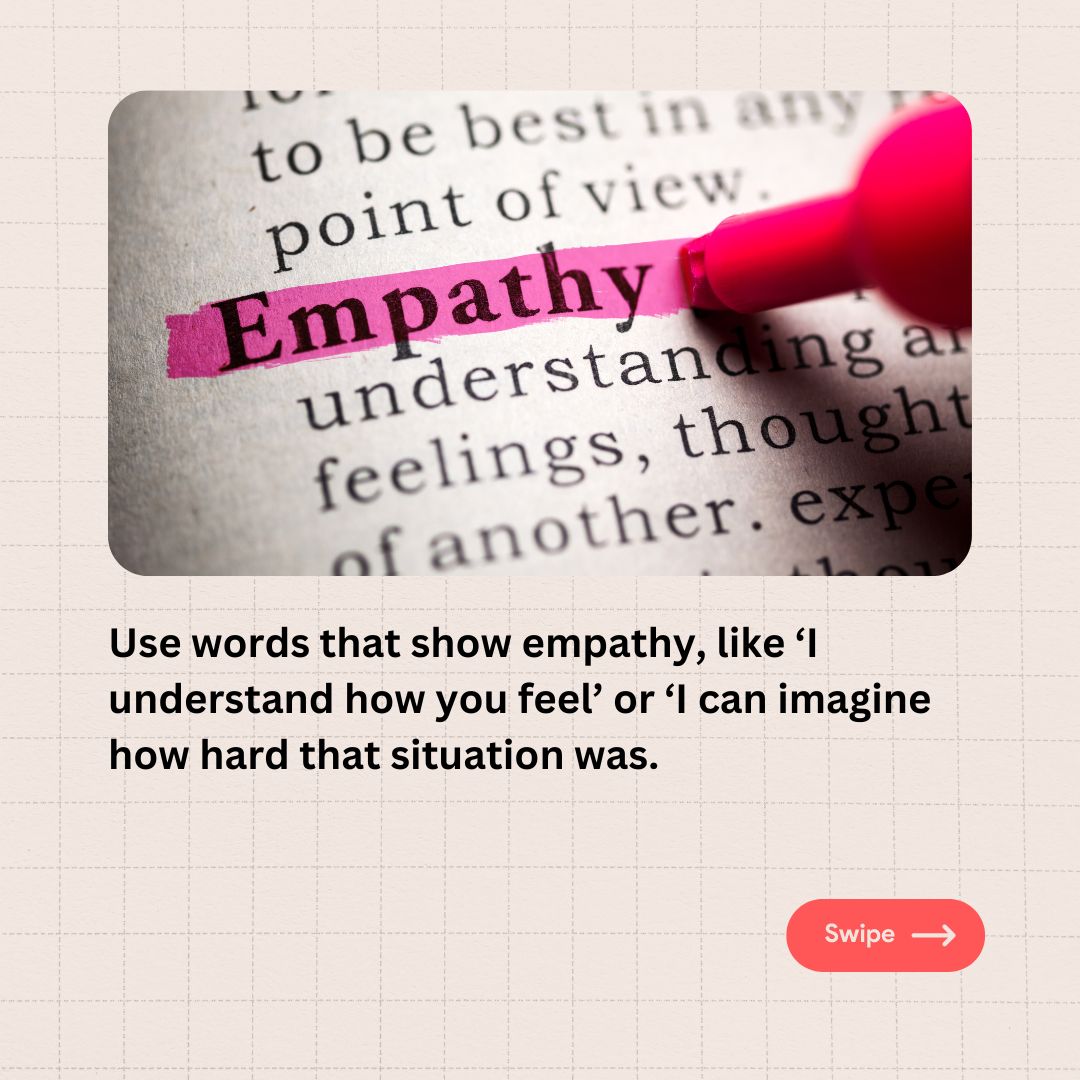What is active listening and how being a better listener can help your career

Table of Contents
Working nowadays happens not just in person or at the office, but also via Zoom, making active listening more important than ever.
Active listening helps us connect and work together better in the office or working from home.
What is active listening?
Active listening happens when you fully engage and understand the person speaking during a conversation.
It involves giving 100% attention, interpreting nonverbal cues, and responding thoughtfully.
Conversely, poor listening occurs when you don’t fully engage or comprehend what the other person is saying.
You miss out on crucial details and fail to grasp the intended meaning of their message. Here’s what poor listening looks like in the workplace:
- An employee checks emails and types responses during a virtual meeting. They frequently ask coworkers to repeat themselves to catch up on essential details.
- During a staff meeting, an employee only focuses on the parts of the presentation that directly pertain to his department. They tune out when other teams discuss their progress, so they can’t glean valuable insights that could help them see the bigger picture.
- An employee wanders or daydreams during a project catch-up and misses out on important information. When asked for feedback, they need more focus to contribute meaningfully.
- During a brainstorming session, one employee interrupts their colleague even before they finish explaining. The interruption disrupts the meeting flow and shows a lack of respect for the speaking employee.
- During a team catchup, one employee avoids making eye contact, has a slouched posture, and occasionally checks their phone, which sends a clear message that they are bored or disinterested.
- One employee confides in her colleague about a work challenge. Instead of completely listening, the employee immediately started giving suggestions without fully understanding the issue, leaving the confiding employee unheard and frustrated.
Active listening is needed to communicate effectively with colleagues because misunderstandings can strain relationships and result in potential work disasters.
According to a Forbes survey, poor communication greatly affected workers, with nearly 50% of respondents reporting that ineffective communication impacted their job satisfaction, while 42% said it affected their stress levels.
40% of employees also reported it reduced their trust in leadership and their team. Meanwhile, job satisfaction relies on effective communication for the majority of workers.
What is empathetic listening?

Empathetic listening involves genuinely understanding and connecting with the other person, with their thoughts and feelings.
As a listener, your goal is to place yourself in the speaker’s shoes so you would see things from their perspective.
More than just understanding the speaker, you offer support and encouragement, which is necessary for building solid relationships.
Active listening and empathetic listening are closely related but have distinct characteristics that set them apart. Here are the similarities and differences between the two:
Similarities
- Active listening and empathetic listening require full engagement of the listener.
- Active and empathetic listening involves non-verbal cues like eye contact and facial expressions.
- Active listening and empathetic listening focus on being respectful to the speaker by not interrupting them while talking.
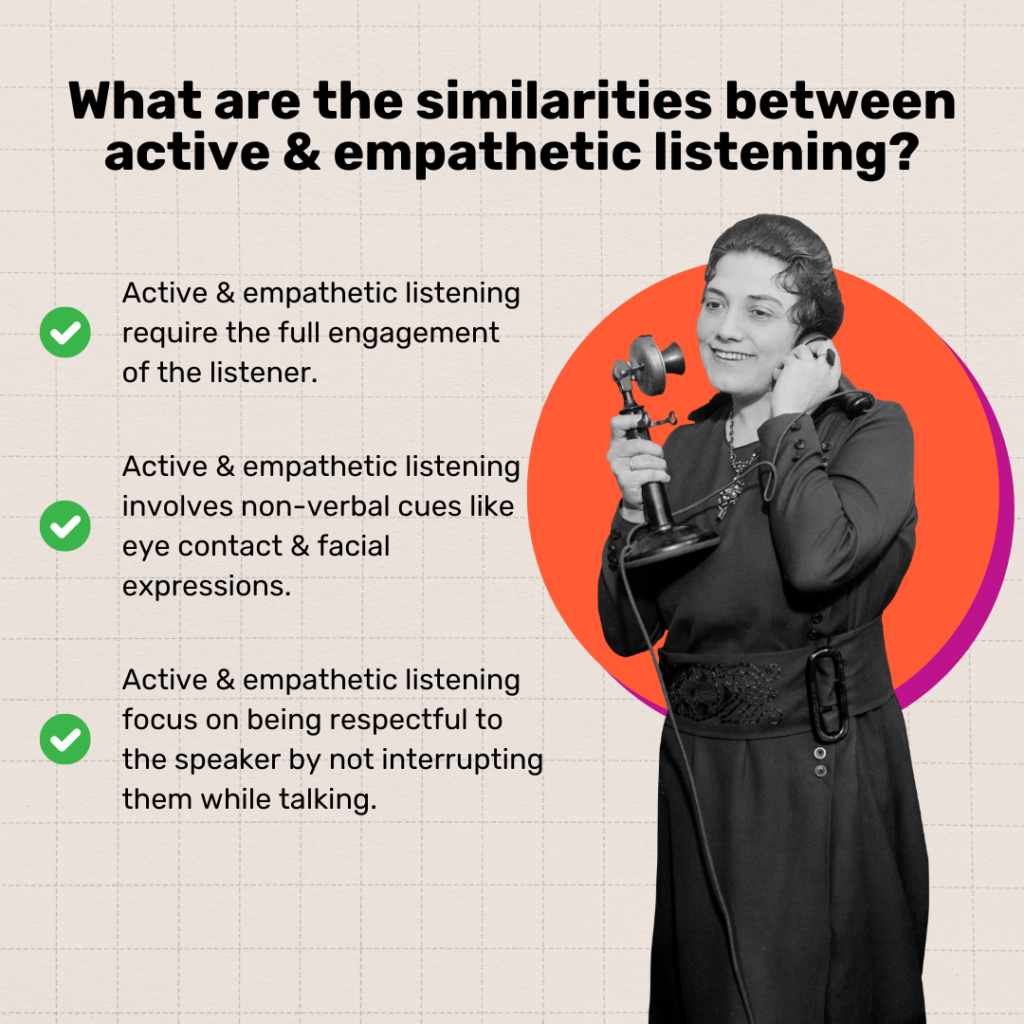
Differences:
- Active listening emphasizes understanding the speaker’s message for effective communication. Empathic listening goes beyond the message by connecting with the speaker emotionally to foster a sense of understanding.
- Active listening aims to solve the problem by collecting information and brainstorming solutions. Empathetic listening centers on giving emotional support.
- Active listening’s goal is to improve communication and understanding. The objective of empathetic listening is to enhance trust and connection.
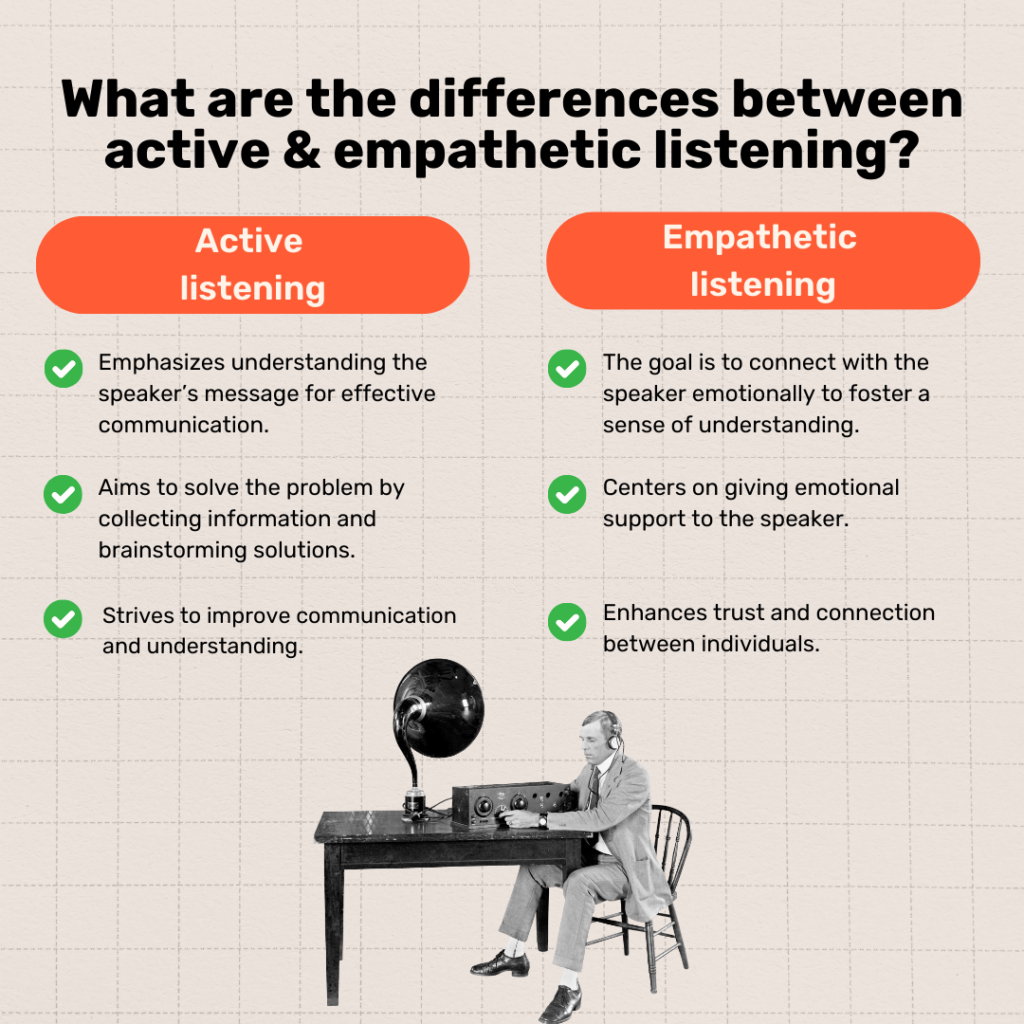
What are the benefits of active listening in the workplace? How can it help your career?

Active listening improves work relationships which is critical in successful organizations.
Here are the ways it is beneficial in organizations:
- Active listening intensifies productivity. A Salesforce research study found that when employees feel heard, they are 4.6 more likely to feel empowered to give their best at work. Employees are more productive when they feel they belong, are listened to, and be their authentic selves at work.
- Active listening reduces conflicts in the organization. Employees develop empathy when they hear what their colleagues say, promoting better understanding, finding common ground, and reaching solutions.
- Active listening improves problem-solving. Ideas are shared more openly, and the differences in viewpoints allow for better decision-making.
- Active listening enhances teamwork. Actively listening to colleagues, superiors, and clients builds rapport and camaraderie, which makes for better collaboration and support.
- Active listening boosts employee engagement. According to the Workforce Institute, 28% of employees said managers can earn their trust by listening actively and vice versa. Employees who feel heard and valued are more likely to trust their managers and are more motivated to excel in their jobs.
- Active listening reduces mistakes. Misunderstandings can lead to costly mistakes and wasted time. By actively listening, you gather the correct information, which becomes the basis for implementing corrective actions and strategies.
- Active listening promotes diversity and inclusion. Active listening fosters an inclusive workplace where employees of all backgrounds are given equal opportunities to be heard.
- Active listening fosters positive company culture. Organizations prioritizing active listening create an environment of open communication and respect, contributing to positive workplace relationships.
- Active listening addresses employee well-being. Employees are allowed to share their sentiments and concerns, improving their mental health.
The National Association of Colleges and Employers Job Outlook 2023 reported that more than half of responding employers will seek problem-solving skills (61.4%)and communication skills (50%) on job candidate resumes.
And you’ll develop these top skills with active listening.
Here’s how active listening can benefit your career:
- Active listening enhances your communication skills. It hones your ability to interpret other people’s messages correctly so you can provide better responses.
- Active listening improves your problem-solving abilities. It allows you to collect accurate data to formulate more accurate solutions to problems.
- Active listening develops your ability to empathize, essential when building rapport with coworkers. Individuals are more likely to appreciate people who genuinely listen to them and show concern for their welfare.
- Active listening helps in your professional development. You will learn a lot when you listen to your older colleagues share their experiences and expertise.
- Active listening helps you increase your sales. You understand people’s needs so you can better position your products and services accordingly.
- Active listening improves your customer service skills. Listening to customer complaints and queries can help you provide a tailored solution.
- Active listening boosts your networking skills. You become a more engaging conversationalist, building richer connections and relationships when you join professional events and conferences.
8 Techniques to improve your active listening skills
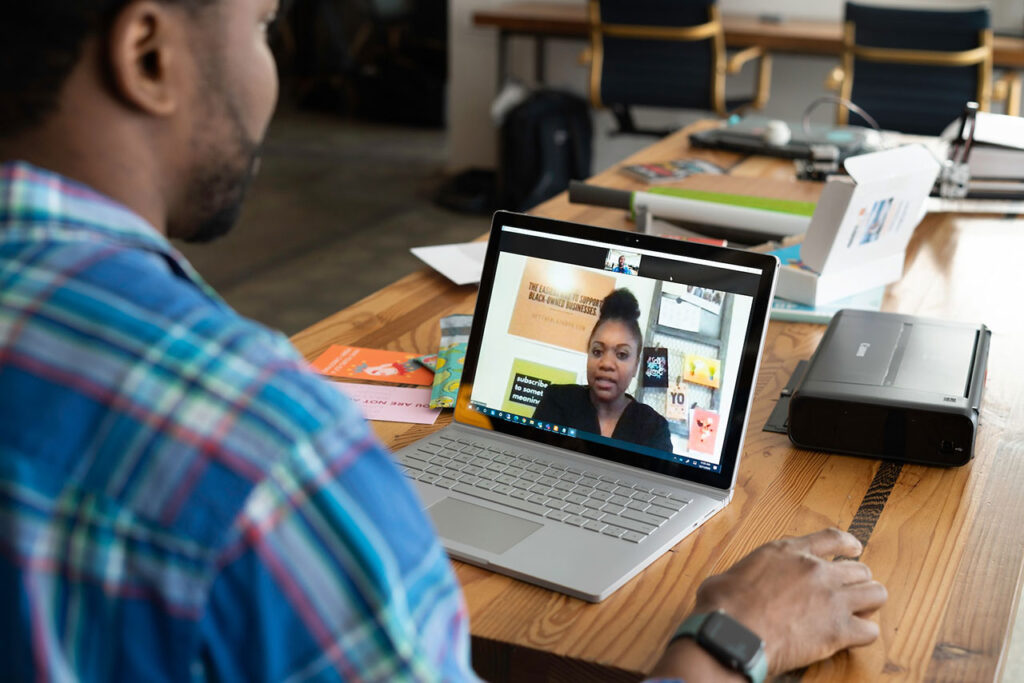
Active listening is critical for effective communication and collaboration. Here are some techniques and best practices you can do at work:
- Be in the moment. Focus on the person speaking and what they are saying. Avoid non-listening activities like checking your phone or email.
- Maintain eye contact. Look at the speaker to show attentiveness and engagement.
- Look for non-verbal cues. Pay attention to facial expressions, gestures, and tone of voice to get the emotional context of the message.
- Suspend your judgment. Refrain from forming opinions before fully understanding the speaker’s point of view. Give them time to fully express themselves and wait until they’re finished before you respond.
- Take notes. Jot down key points so you don’t forget them.
- Respond positively. Address them directly to demonstrate that you value your colleagues’ opinions and you listened to them.
- Ask questions to clarify any misunderstandings.
- Paraphrase and summarize. Repeat what you’ve heard in your own words to confirm you understood the speaker’s message.
If you want to have better relationships with your coworkers and customers, you can develop empathetic listening skills using the following practices:
- Don’t interrupt the speaker while they are speaking
- Use gestures that show encouragement, like nodding your head occasionally, to show that you’re listening to them.
- Ask open-ended questions to motivate the speaker to share more about their thoughts and feelings so you can understand them better.
- Use words that show empathy, like ‘I understand how you feel’ or ‘I can imagine how hard that situation was.’
- Avoid offering solutions immediately. Empathetic listening is about understanding, not resolving issues. Only advise if they ask for it.
- Observe the words and emotions behind them to understand what they’re going through entirely.
- Let the speaker take their time. Rushing them might cause them to bottle up instead of opening up.
- When there’s a disagreement, stay calm and composed. Concentrate on understanding rather than reacting emotionally to avoid escalation.
Like any skill, active listening improves with practice.
Engage in conversations intentionally to develop and refine your listening skills.
Regularly reflect on your interactions to identify areas for improvement.
Conclusion
Now more than ever, active listening is vital in the workplace, whether in the office or remotely. It enhances teamwork, productivity, and company culture.
For individuals, it contributes to their career development by improving their communication skills, problem-solving abilities, and learning competencies.
But it’s not only for work. Active listening also helps in our personal life too. It helps us understand how others feel, learn new things, and keep our relationships strong.
